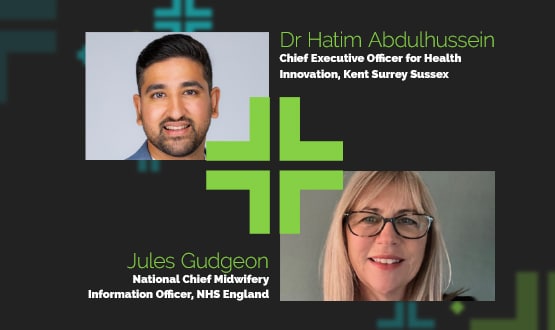‘Human-centred’ innovation needed to successful adopt AI in the NHS
- 5 November 2019

A “human-centred” culture of innovation is needed to successfully integrate “radical technologies” like artificial intelligence into the NHS, a new report has found.
The report, Patient AI, also found there is some resistance to new forms of digital technologies due to fears they were put in place to satisfy a “political agenda” rather than improve patient care.
The Royal Society for the Encouragement of the Arts, Manufactures and Commerce (RSA) report, commissioned by NHSX, concluded the health service needs a robust approach to engaging the public on how technology is used in healthcare if AI is to be adopted at scale.
“We encountered embedded scepticism that technological adoption was not so much about patient care or improving quality of life and health, but to satisfy a political or commercial imperative,” the report said.
It also found a “residual suspicion” that AI based interventions were “second class”, but that patients and clinicians were open to AI being scaled across the NHS provided it met sound criteria.
“There is a growing awareness of the ethical issues around AI and other radical technologies among the public. Both patients and clinicians are becoming increasingly wary of adoption without evidence or public conversation,” the report went on to say.
The RSA warned “clinical champions” – individuals willing to embrace, learn about and encourage others to use new technologies – are needed if automation is to be taken up by the NHS.
Asheem Singh, the RSA’s director of economics, said: “The NHS is in the midst of an AI revolution. Recent years have seen rapid improvements in the use of machine learning and automated decision systems in imaging, data analysis and diagnosis.
“However, we need to ensure that the voice of patients and clinicians are at the heart of technological change. As our research shows, the public are sceptical about the use of AI in the healthcare system, while doctors are concerned that politicians are foisting shiny new AI systems upon them in order to be seen to be innovative rather than to genuinely promote better care.
“New technologies must not be introduced solely as a means to cut costs or garner headlines.”
Last month a Guardian and Bureau of Investigative Journalism (TBIJ) revealed Boris Johnson’s most senior aide, Dominic Cummings, had advised Babylon on its communications policy, sparking “conflict of interest” accusations.
Babylon confirmed Cummings carried out a “very short, one-off piece of consultancy work” advising on the company’s communications strategy.
Secretary of State Matt Hancock has faced criticism for seeming to publicly back the digital-first provider, which also develops AI.
At the Royal College of GPs conference in October Hancock publicly revealed he is registered with Babylon’s GP at Hand.
The RSA report comes as NHSX published its first foundational policy on the £250m National AI Lab, which was announced in August.
The report, Artificial Intelligence: How to get it right, revealed 20 developers are “confident” their AI technology will be ready to implement in the NHS within a year and a further 70 have predicted their products will be ready to use within five years.
The report also commits to deliver a “how to” guide for developers producing AI algorithms, including the ethical examination of data.




2 Comments
If it isn’t human-centred it has no place in healthcare. Full-stop.
“We hope this short report has, at least in outline, demonstrated that
patient AI is key to a better NHS” – I don’t think it was demonstrated.
And lord protect us from management speak (noted in the body of the report, and in quotes):
-We *surfaced* three principal uses
-*pain points*
-*platformed*
-*robust* conversation *around*
Whatever happened to plain English and plain speaking?
Despite a high regard for Ali Parsa, I cannot believe that Matt Hancock is NOT registered with the NHS App! Shame… He should be setting an example for all clinicians and patients.
Comments are closed.